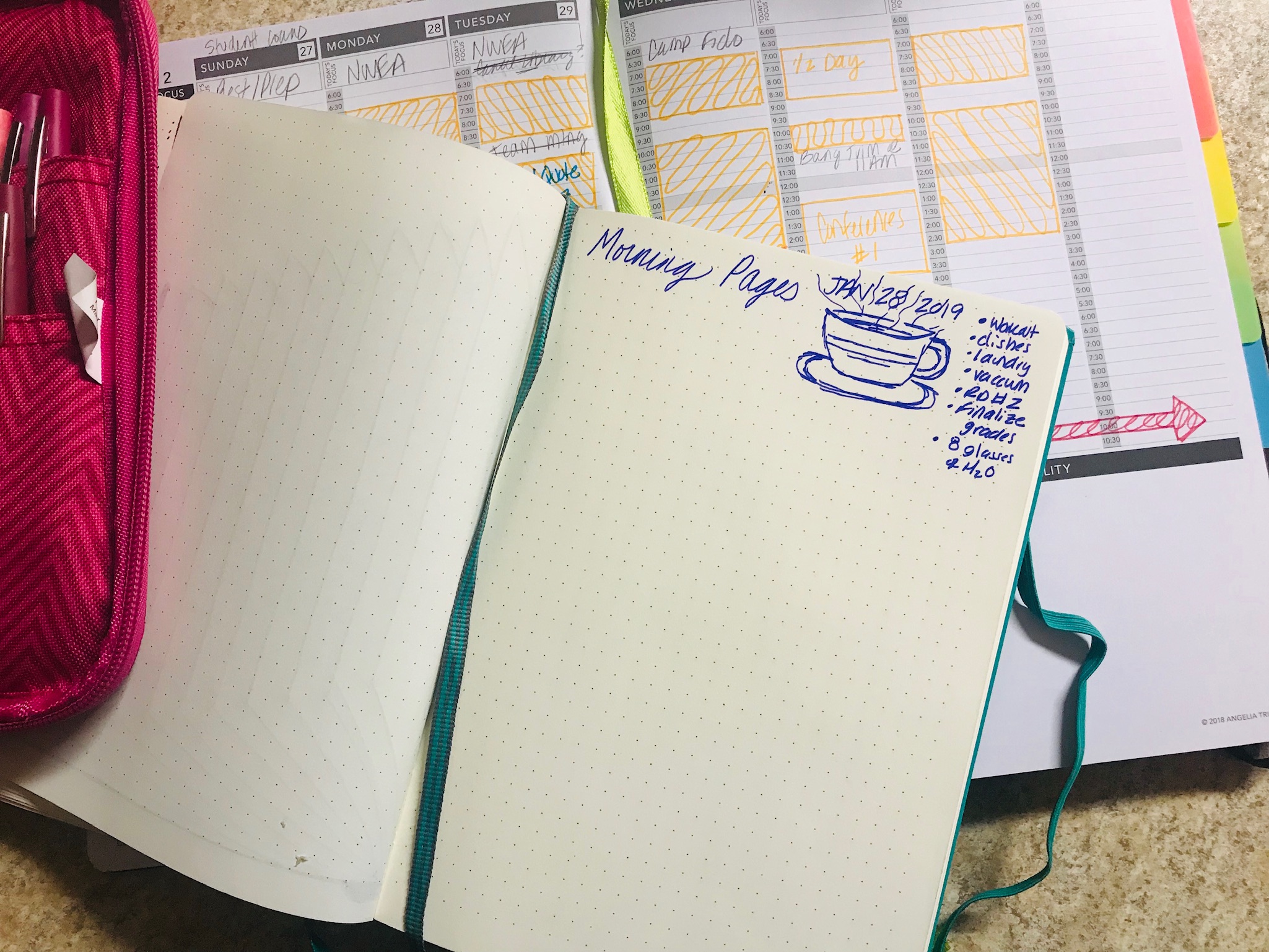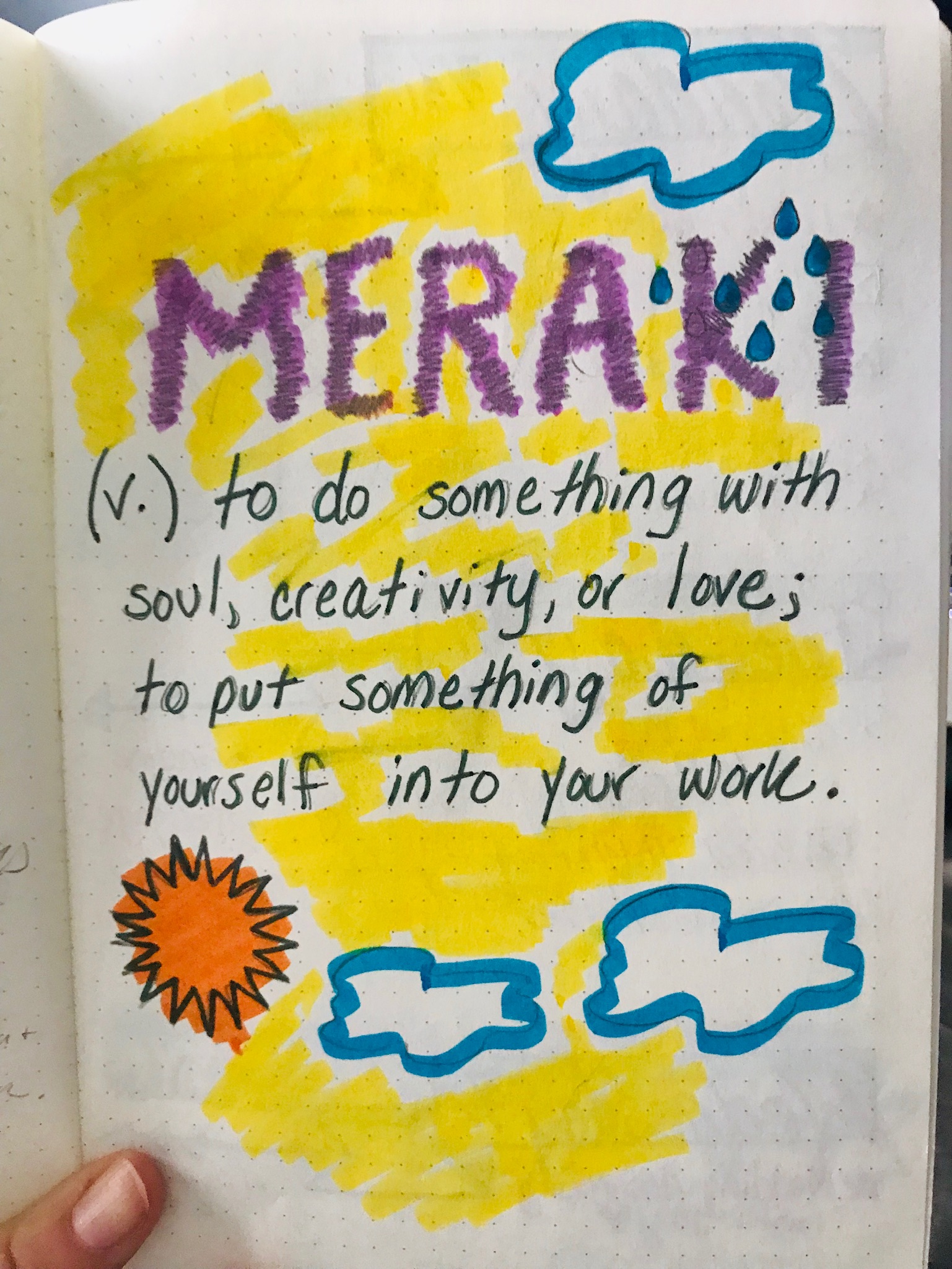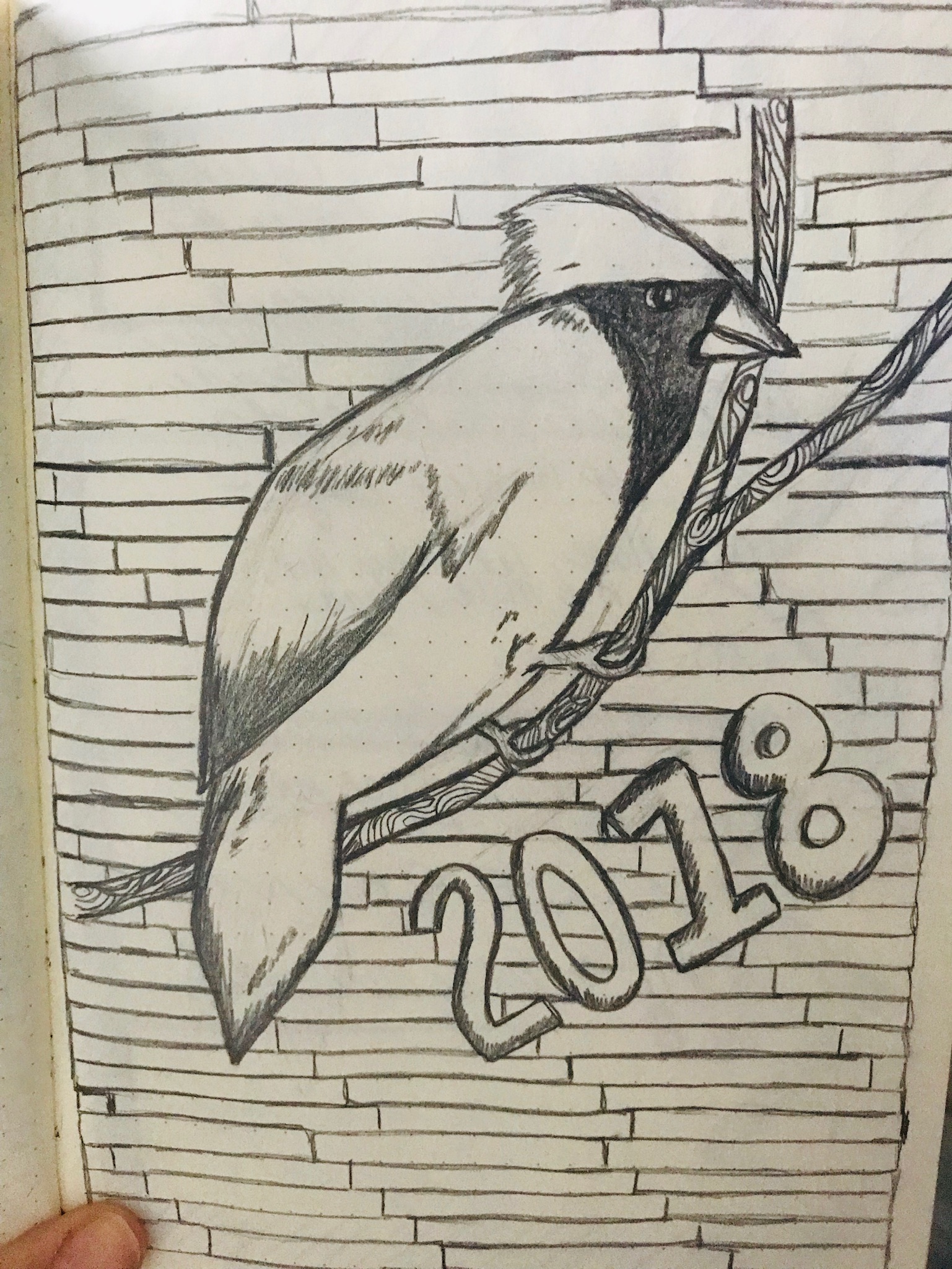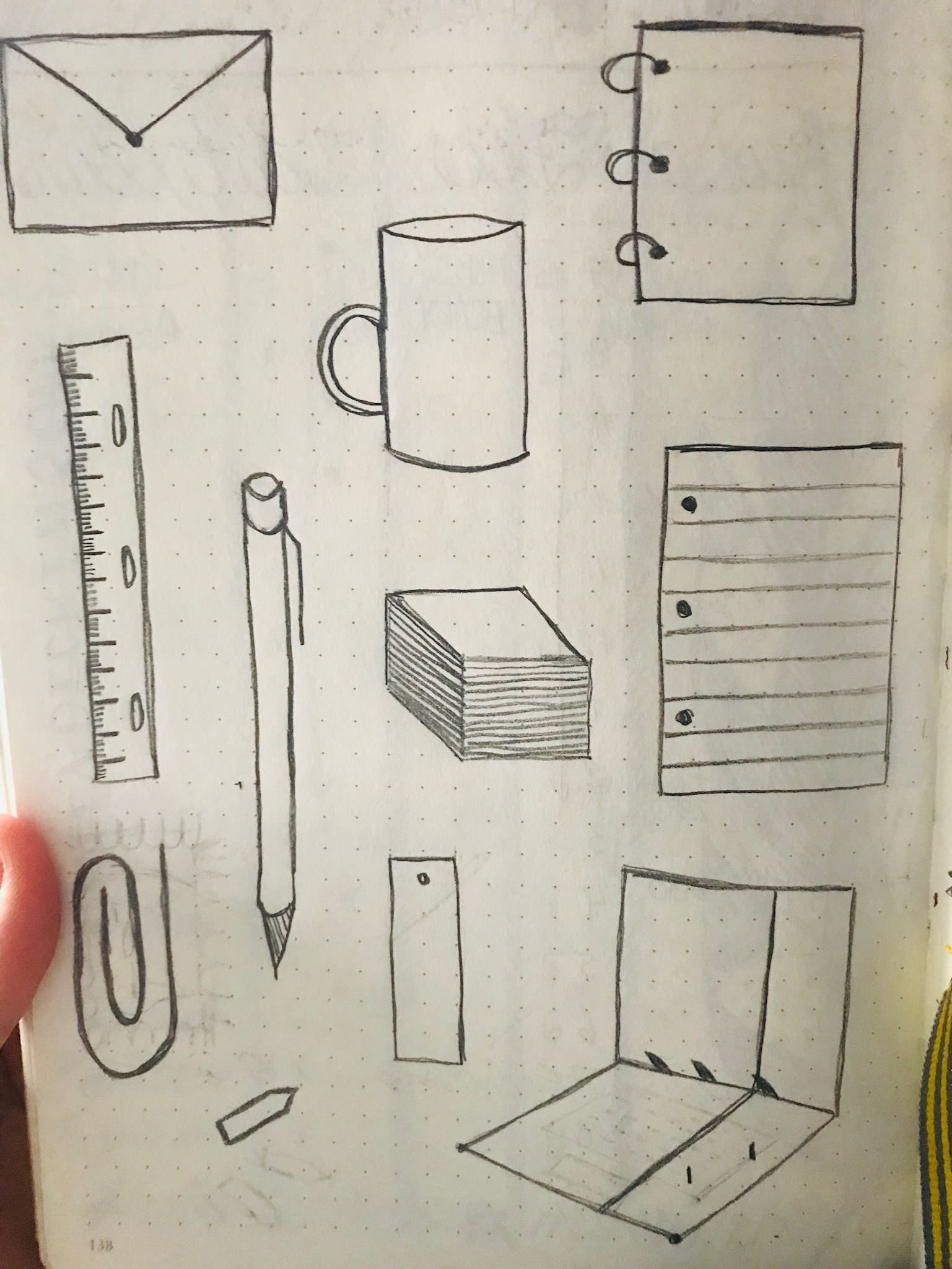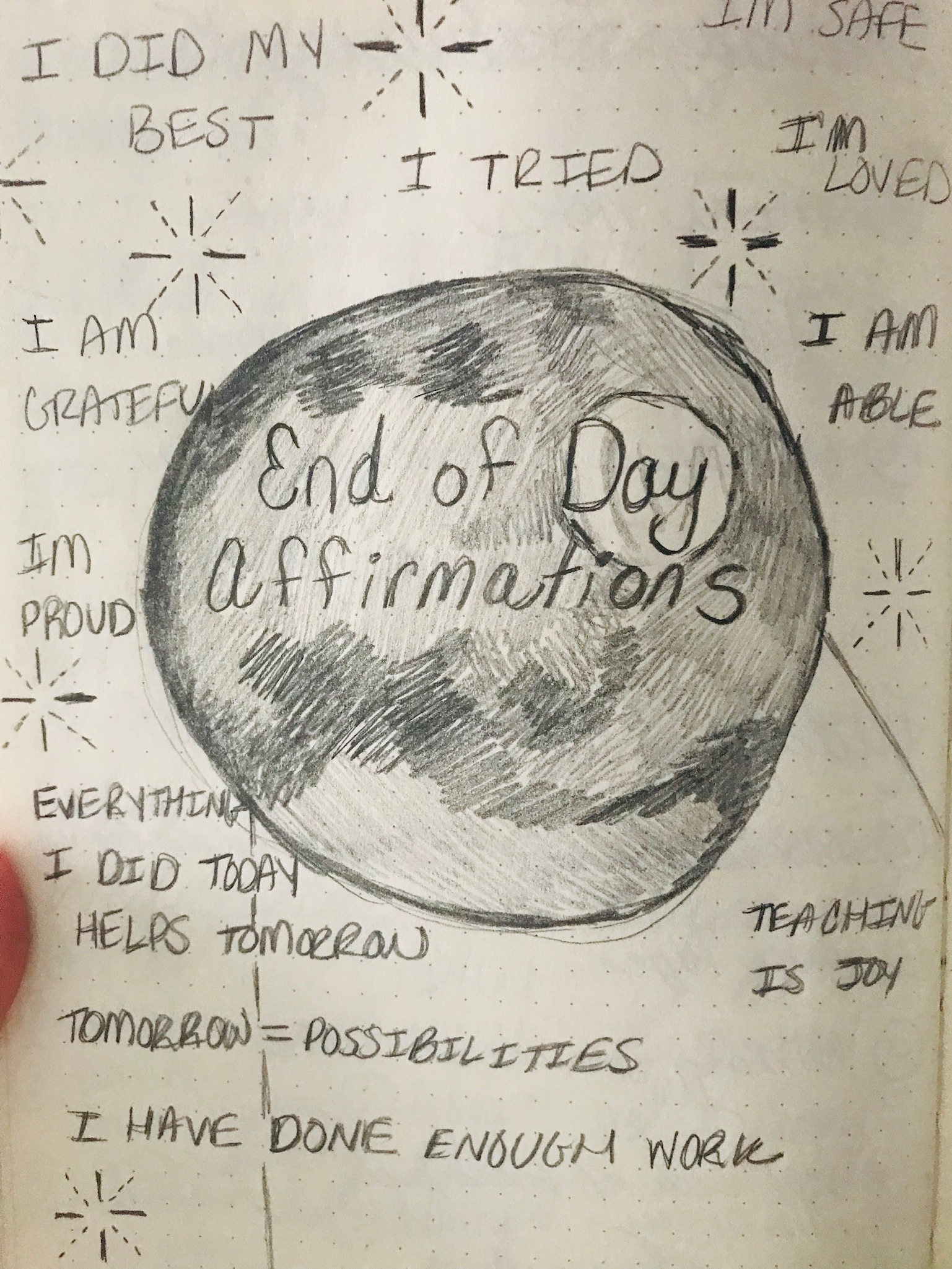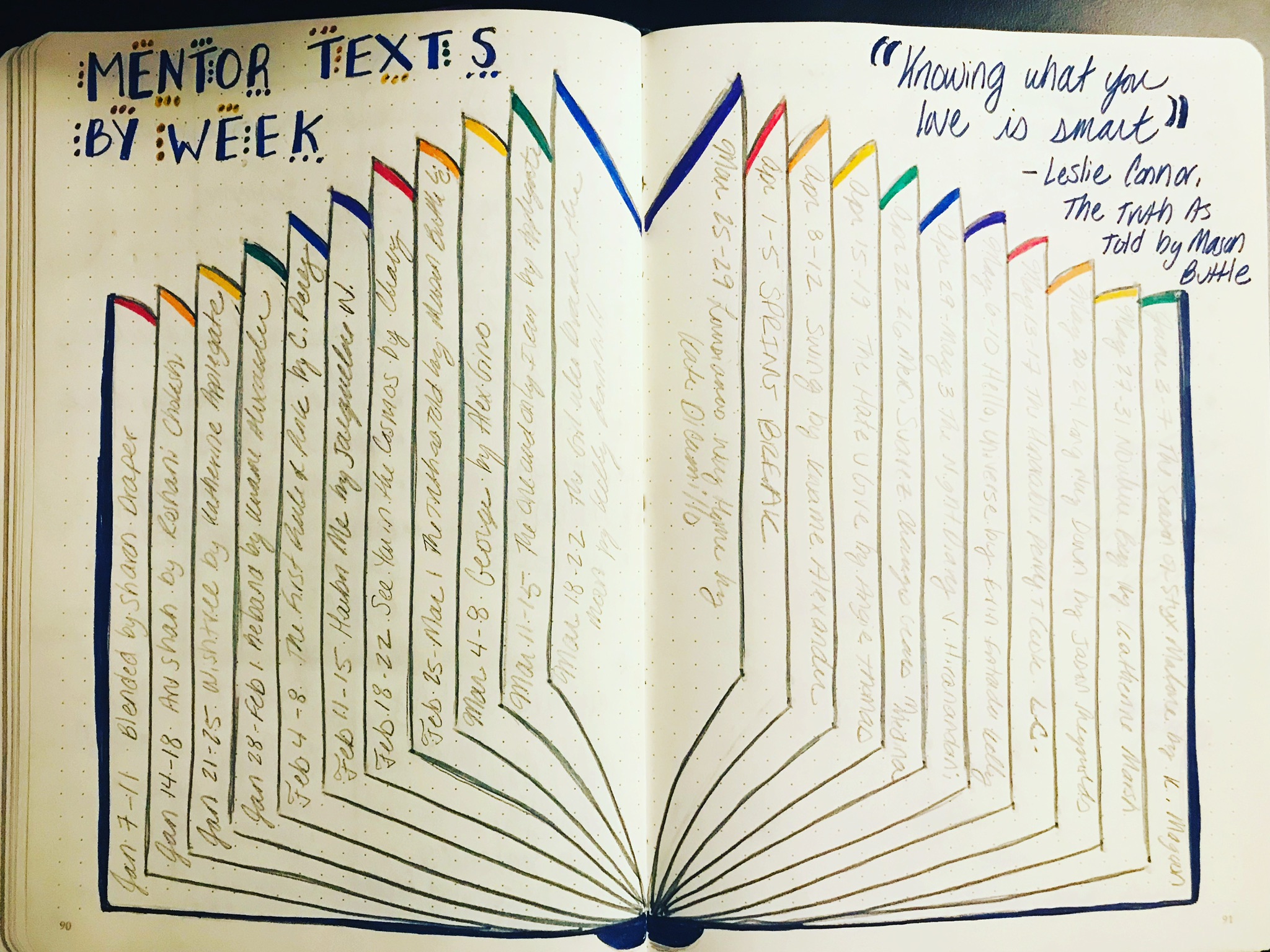English Teacher Anxiety: Using Our Own Tools to Quiet Panic
Why Am I Awake at 3 AM?
When I first started working on this post, I looked up synonyms for anxiety. Not that I needed a definition, I just was curious what would pop-up on the page. The word that stuck out to me the most was mistrust. As English Teachers and teachers in general, we mistrust ourselves based on our profession workload because it is a.) overwhelming and b.) important work. We come to grasp that we can never achieve perfection, and for many perfectionists, this means in our minds we think we are settling. Teacher anxiety does not apply to just English Teachers alone, but the volume of paper and grading that is specific to the teaching of English creates an interesting dynamic where we often feel behind, tired, and downright depressed. I am not putting on the table that other subjects do not have grading issues, but there is a special place in my soul that dies a little when I take 76 MLA research paper rough drafts home to grade.
My own journal with teacher anxiety looks like this: waking up at 3 am with a lesson plan ideas, not being able to stop working at night time due to the need to check the list off, and feeling utterly behind at all times. Paper is even one of the reasons I have stated here on the blog that I would leave teaching. And yet, this is the very nature and business of teaching in and of itself. We come to accept that we don’t have it all figured out, and we try to master the select few things we become passionate about and experts within our field. We find joy in connecting with the youth, but are weighed down by testing, papers, standards, and more. Finding the balance is key in the classroom, but this delicate balance matters more on the individual level. We each have to find the balance of time in our lives in order to stay teaching. Furthermore, this to-do list anxiety that I am getting ready to discuss in-depth is something that makes people quit teaching all the time. I am not sure I could ever blame them for going; however, I am for certain that many stressors that we face as teachers can be controlled enough as to where we want to stay pursuing our passions.
Current Conversations
I was going to start this post with a disclaimer about me not being a mental health professional. Instead, I’ll insert it here. As you look at many of the current conversations surrounding teacher depression and anxiety, you will see many of them urge their readers to go seek help. I am urging people to do this, but I am not a mental health therapist or professional in any capacity. This post addresses the general anxiety educators face on a day in and day out basis, and some basic strategies that have worked for me and my workload. Let’s face it. This teaching thing is stressful and frustrating and downright impossible most of the time. I love the articles on WeAreTeachers. Here are some other resources if you are interested in reading and getting further involved in the teacher anxiety conversation:
How Other Teachers Cope With Sunday Night Anxiety-WeAreTeachers
6 Strategies to Relieve Teacher Anxiety-Western Governor’s University/WGU
Navigating teacher anxiety when you’re drowning in work-Angela Watson (and Podcast, too!)
I Am A Teacher With Generalized Anxiety Disorder-The Designer Teacher
My favorite part about all of these resources is that they make people realize that other people are going through similar difficulties. I often reach out to my colleagues when I am overwhelmed and need to digest my to-do list. They are often going through the exact same thing I am going through in that moment. No matter what subject area it seems to be, building community around ourselves is a critical component to successful teaching in the long-term.
Five English Teacher Tools to Combat Self-Doubt
Tool #1: Write It Out
As English teachers, we look at writing nonstop. We also look at writing strategies nonstop. I am a huge advocate for the action of writing to also be part of our daily lives. Teachers must be writers and readers. I carry two different journals: One journal controls my schedule and duties and one journal is for me to dream, to plan, and to vent. The latter is the journal where I consistently do my morning pages.
One thing I have added to my routine that helps with teacher anxiety is the action of morning pages. Morning Pages come from the book The Artist’s Way. It involves stream of consciousness writing that is not judged and becomes part of a morning routine. Morning pages are simple. I have a giant to-do list that doesn’t ever seem to get all the way checked off. I always start my day reviewing what absolutely has to get done. What do I want to accomplish in that day to be successful? I limit this to five bullet points. I write those five things down in the corner, and then I do a brain dump. I follow Megan Minns quite a bit because she has some amazing material on website design and branding, but she recently talked about how to manage stress. She also uses a brain dump combined with journaling. Here is her most recent video about stress:
On top of morning pages, I keep a tiny clipboard on the side of my bed to write down anything that comes to mind. I also make a giant to-do list if my brain is overwhelmed, and then break that down in my Passion Planner into manageable chunks that are scheduled into timed boxes or a daily agenda. I have to constantly remind myself that we aren’t designed as people to accomplish 20 million tasks a day. If I set my goals of 4-5 things I want to be done for that day and make achievements, I am allowing myself to experience success instead of the failure feeling of never being caught up.
Immediate Action for #1: Start a bullet journal. Grab a notebook or clipboard. Get some flair pens and start writing! This can be poetry, a list, or maybe even concerns you have about the upcoming week.
Tool #2: Read
I love my Calm App for de-stressing at night time, but nothing gets me like a good book. My mentor text work has brought me back into the world of middle-grade fiction (and what a world to get lost in again!) We, as teachers, must be readers. When I saw Kelly Gallagher in the fall and he spoke about the faculty book club he runs, I nodded my head, but inside I was grimacing. How many of us can say we are readers? How many teachers have time in one's day to put a few minutes aside and read a book of their choice? The world demands nothing from us but time. How do we choose to spend it?
Ultimately, we have to find the time. Mainly, because reading...deep reading..forces us to get lost in a story or some information, and it takes us away from stressors. I often will get into this situation where I am reading because I can use it in school. Why shouldn’t we use the excuse that the more we read as English teachers the better the book recommendations we can give to others? Reading for enjoyment can also count as meditation. I can visually tell the difference between a student who is reading during class reading time or in the library and one who is not. Their breathing looks different. Their eyes look different. They are settled. Am I right? This slowing down of breathing and getting lost in a story is good for the mind and body.
Immediate Action for #2: Go get a new book to read or download a book on Audible. Like we tell the kids, don’t be afraid to abandon something that is not interesting, just don’t give up on looking. May I recommend Meg Medina’s Merci Suarez Changes Gears? I just picked this Newbery winner up today to read.
Tool #3: Set Boundaries
I laughed when I first wrote this idea for number three. It may be because I am the most terrible in skill level (growth mindset tells me, just not yet) or because I struggle with this one the most. I have a hard time saying no. It is flattering when you are asked to do everything: Team Leader, Department Head, School Improvement Team, Specialized Curriculum Committee, Writing Club, and more. However, there is simply not enough time in the day, and I always have to remind myself that the job we do each day in the classroom is the most important. It is enough. It is enough to simply be a classroom teacher who focuses on teaching.
I feel like I may be the best at helping other people set boundaries. Recently, in one of the student-parent-teacher meetings, I helped make a roadmap for the student to catch up because this student had fallen behind in my class. The path out of being buried with work seemed like an impossibility to ever catch up from the eyes of this student. However, at the end of the meeting, the student and parent left with 1-2 things to do each night (student=work, parent=accountability) that would help move the student along. It is amazing to me that teachers have the current skills that we need, but we often don’t apply them to ourselves.
The best way I am getting better at setting boundaries is saying no and considering the role of time. I use my Passion Planner to block out the time I am working each week, and I block out the time I allow myself to work at night time. The rough part here is that I will almost always fall behind if I stick to this schedule, but then I block out a set of time to catch up. Angela Watson from the 40 Hours/Week Teaching Club put these words in my mind: Set aside the time outside of school that you are willing to dedicate to teaching and stick to it. Her words were important to me because it helped me create a non-negotiable pact in exchange for my own time.
Immediate Action for #3: Block out your time with a planner or bullet journal. Say no to something you would normally say yes to in the past. Even start small...check your email 2 times a day instead of 10.
Tool #4: Get Grading Under Control
I used to say that paper would be the reason I would leave teaching. Now, I say that is 50% of the reason I would ever leave. Grading and paper take up time. This loss of time is what concerns me now. In order to help manage the time, I need to look at my practices with grading. Here are some things that have helped me in the past few years:
Don’t grade everything.
Grade in small batches. Even though I personally hate this one. I like to do big chunks to feel like I am getting big payoff! It doesn’t work like that…
Bribe yourself. I am serious. Buy the flair pens. Buy the cute highlighters. Make it so you enjoy grading.
This area, again, is still something I am working on in terms of self-progress. However, since I have made some of these changes, I have found that I am able to set those boundaries that were mentioned above. This element of time in regards to time spent outside of the classroom is the critical area that we often view as a way to “catch up” to not feel stressed, when in reality we need to use this time to unwind and pour into ourselves to help ease that anxiety from the to-do list and life in general.
Immediate Action for #4: Give yourself a break from grading for a night. It is freeing. Look at what could be graded in class. Set a goal to grade more things in class or while students are working.
Tool #5: Focus On Your Niche
I love reading teacher education books. I devour them and want to apply the awesomeness that was my current reading in my classroom immediately. However, we can’t do everything. All strategies cannot be implemented at one time. Isn’t this why new teachers feel so overwhelmed? Their teacher toolboxes are not full yet, and they realize that they don’t have some skills that they need? I find that even teachers who have been doing this for a while, still get lost in the trap of wanting to do everything. I do. All the time. In particular, because secondary English teachers teaching reading and writing in the same block of time (Trust me, elementary teachers, we are jealous of the separate time, but I’m not sure we could do what you do) we have to compensate for doubling up on strategies. All other professions have specializations. Doctors practice a certain type of medicine. Lawyers focus on a certain aspect of law. Why shouldn’t teachers have specializations?
Mainly because we are expected to be good at everything. Insert the meme here in your mind where you see the “teacher of many hats” reference. This is dangerous. It makes us feel like we are constantly not doing enough. Instead, we need to look at what parts of teaching make us happy and fulfilled, and then how do we put this in our classrooms each day. The next step after this would be to collaborate with peers that have a different skill set so you can complement each other. Here is an example of my current focus areas:
Writing Mindset/Being a Teacher Blogger:
Mentor Text Work
Cultural Responsive Education/Diversity in Literature
Teacher Bullet Journaling
Teacher Self-Care
My Classroom/Sixth-Grade English Teacher:
Reading Motivation/Appreciation
Mentor Text Work
Creative Writing
Six-Traits Application to Argumentative, Expository, and Narrative Genres of Writing
Immediate Action for #5: Brainstorm what you love. Let your imagination go crazy. Why do you teach every day? Yes, it is for the kids, but what else? Make a brainstorm of what you consider yourself to be good at when it comes to teaching.

